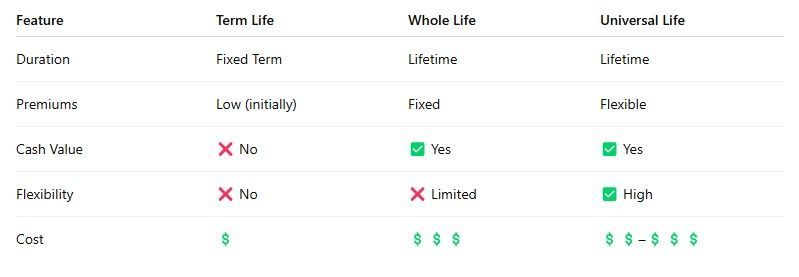By Mark L
•
February 23, 2026
Flood insurance rates can vary widely between two nearby homes because pricing is driven by flood risk factors like elevation, flood zone, distance to water, building characteristics, and the chosen coverage limits and deductibles—not just the neighborhood. Small differences in a property’s risk profile can change the premium significantly in Fort Pierce, FL. Flood Insurance Costs Explained: Why Two Homes Can Pay Very Different Rates Why Flood Insurance Pricing Isn’t “One Price Per Neighborhood” Flood risk is highly specific to the exact structure and the exact piece of land it sits on. Two homes can be on the same street and still have different flood exposure due to elevation, drainage, or how water flows during heavy rain and storm events. In our work with clients, a common issue we see is homeowners assuming they’re being overcharged because a neighbor pays less. Usually, the difference comes down to data points insurers use to estimate risk—some of which aren’t obvious unless you know what to look for. Flood insurance pricing is essentially a risk score translated into a premium. The risk score can change quickly from one parcel to the next. The Biggest Factors That Change Flood Insurance Premiums Elevation And “Height Above Flood Level” Elevation is one of the most important drivers. Even a small difference in how high a home sits relative to expected flood levels can change pricing. A house that’s a few feet higher than a nearby home may be less likely to see floodwater enter living areas, which often results in a lower premium. If an Elevation Certificate is available (or can be obtained), it may help clarify how the building sits relative to flood levels, depending on the insurer and policy type. Flood Zone And Floodplain Mapping Flood zones matter because they reflect modeled risk from rivers, storm surge, coastal flooding, and heavy rainfall. Two homes that look close on a map can fall into different zones, especially near zone boundaries. Even within the same broad zone, some properties have different risk designations based on localized data. A common issue we see is confusion between “I’m not in a high-risk zone” and “I can’t flood.” Low-to-moderate risk areas can still flood, and rate differences often reflect that gradient. Distance To Water And Water Flow Patterns Proximity to bodies of water—rivers, canals, lakes, or coastal areas—can influence pricing, but it’s not just distance. How water flows during storms matters, too. Two homes could be equally close to water, but one may sit on a natural drainage path or lower terrain that accumulates runoff. Near the Indian River Lagoon, flood exposure can be influenced by both rainfall drainage and storm-driven water movement. That’s one reason insurers rely on property-specific modeling rather than simple zip-code averages. Building Type And Construction Details Flood insurance often prices the structure based on features like: Foundation type (slab, crawlspace, pilings) First-floor height and the presence of enclosures Number of floors Building occupancy and use (primary residence vs rental vs seasonal) Construction materials and flood openings (where applicable) A home with an elevated structure or flood-compliant construction can price differently than a similar-looking home on a slab foundation. Coverage Limits, Deductibles, And What You’re Insuring Two homeowners can have very different premiums simply because they chose different coverage options. Key choices that affect premium: Building coverage amount Contents coverage amount Deductible (higher deductible usually lowers premium) Replacement cost vs actual cash value (where applicable) Optional endorsements or policy type differences A common issue we see is comparing premiums without comparing deductibles. A neighbor with a lower premium may be taking on a much higher deductible. Claims History And Prior Flood Losses If a property has prior flood losses, that history can affect underwriting and pricing. Even if a new owner buys the home, prior losses tied to the property can influence perceived risk and insurer appetite. How The Property Is Used Flood policies can price differently depending on whether the home is: Owner-occupied primary residence Secondary home Rental property Short-term rental or business use Usage affects exposure because occupancy patterns influence how quickly damage is discovered and mitigated, and how the building is maintained. Why Two Homes On The Same Street Can Have Different Rates Micro-Elevation Differences Sometimes the difference is as simple as one home being built on slightly higher ground or having a higher first-floor elevation. Different Foundation And Enclosure Setups One home might have a crawlspace with proper flood openings, while another is on a slab with lower entry points. Or one might have an enclosed lower level that increases risk. Different Coverage Selections One homeowner may insure the structure at a higher amount or include contents coverage, while the other only insures the building. Different Deductibles A $1,000 deductible and a $10,000 deductible are not comparable policies—even if both are “flood insurance.” Different Insurer Or Policy Type Some people have coverage through different channels or program structures, and that can lead to price differences even with similar homes. The right comparison is always “apples to apples” on coverage and deductible. In Fort Pierce, FL, we often see homes that appear similar but were built in different decades with different foundation standards and elevation profiles. Those structural differences can matter more than most people expect. How To Compare Flood Quotes The Right Way Use This Simple Comparison Checklist When comparing premiums, confirm these match: Building coverage amount Contents coverage amount (if included) Deductible amount(s) Foundation type and first-floor details on the application Occupancy (primary, secondary, rental) Policy effective dates and any waiting period If any of those differ, premium comparisons can be misleading. Ask For The “Rating Inputs” Summary Insurers and agents can often explain which factors are driving a given quote: elevation assumptions, building details, or coverage selections. Sometimes correcting an input (like first-floor height or occupancy) changes the premium meaningfully. In our work with clients, we see quotes improve when the application accurately reflects the home’s real characteristics—especially elevation-related details. Steps Homeowners Can Take To Potentially Reduce Flood Premiums Confirm The Data Is Accurate Make sure the quote reflects: Correct address and building characteristics Correct foundation type Accurate first-floor height if requested Accurate occupancy and usage Consider A Higher Deductible If It Fits Your Budget A higher deductible can reduce premium, but only choose it if you can pay it after a loss without financial strain. Mitigation Improvements Depending on the property and program rules, certain improvements may help, such as: Elevating utilities Installing flood openings where appropriate Improving drainage around the home Using flood-resistant materials in lower areas Mitigation decisions should be practical and cost-justified. Not every improvement is worth it, but some can reduce risk and future damage. Review Coverage Limits Based On What You Need To Protect Some owners are over-insured for contents or under-insured for the building. Align limits with: Replacement or rebuild needs (as applicable) Mortgage requirements The value of your belongings Your ability to self-fund certain losses Near the St. Lucie Inlet area, weather patterns and water movement can change rapidly during storm seasons, and flooding doesn’t always come from one source. A well-structured policy should reflect your real risk and the financial impact of a worst-case scenario. Common Misconceptions About Flood Insurance Costs “If my neighbor pays less, I’m being overcharged.” (Usually not; inputs differ.) “I’m not in a high-risk zone, so I don’t need flood insurance.” (Many floods occur outside high-risk zones.) “Flood insurance covers everything.” (Policies have limits and exclusions.) “I can buy it right before a storm.” (Waiting periods often apply.) In Fort Pierce, FL, many homeowners don’t realize that rainfall flooding and drainage issues can create claims even without major storm surge. Flood insurance can be a key backstop when water enters from outside and damages floors, walls, and contents. Conclusion Flood insurance premiums can vary dramatically between two nearby homes because pricing is driven by property-specific risk factors—elevation, flood zone data, proximity to water, building design, and the coverage and deductible choices on the policy. The best way to understand your cost is to compare quotes with identical coverage settings and verify the application details are accurate. If you’d like help reviewing flood quotes and the key rating factors for your property in Fort Pierce, FL, the team at ACW Insurance Agency LLC can help you evaluate options and choose coverage that fits both your risk and your budget. At ACW Insurance Agency LLC, we are dedicated to providing our clients with comprehensive and affordable insurance policies. Our commitment extends to going the extra mile to address your specific needs. To learn more about how we can assist you, please contact our agency at (772) 261-2573 or CLICK HERE to request a free quote. Disclaimer: The information presented in this blog is intended for informational purposes only and should not be considered as professional advice. It is crucial to consult with a qualified insurance agent or professional for personalized advice tailored to your specific circumstances. They can provide expert guidance and help you make informed decisions regarding your insurance needs. ACW Insurance Agency LLC Fort Pierce, FL (772) 261-2573 https://www.acwinsuranceagency.com/











